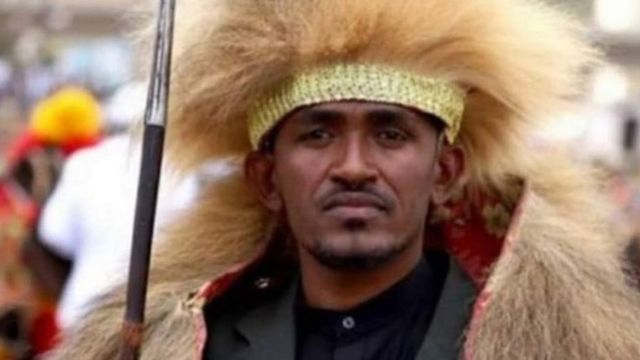Demonstrations have broken out in Ethiopia following the killing of musician Hachalu Hundessa, well known for his political songs.
Two people have died during protests in one town, doctors told the BBC.
Hachalu’s songs often focused on the rights of the country’s Oromo ethnic group and became anthems in a wave of protests that led to the downfall of the previous prime minister.
The 34-year-old had said that he had received death threats.

Thousands of his fans headed to the hospital in Addis Ababa where the body of the singer was taken on Monday night, BBC Afaan Oromo’s Bekele Atoma reports.
To them, he was a voice of his generation that protested against decades of government repression, he says.
Police used tear gas to disperse the crowd.
Gunshots have been heard in Addis Ababa and people set fire to tyres.
In the eastern town of Chiro, two people were shot dead during protests, a medic at the local hospital told BBC Afaan Oromo.
In another town – Adama – one person was injured and government buildings have been set ablaze.
The internet has also been shut down in parts of the country as the protests spread in Oromia regional state.
Hachalu’s body has now been taken to the town of Ambo, about 100km (62 miles) west of the capital.
Prime Minister Abiy Ahmed has expressed his condolences saying in a tweet that Ethiopia “lost a precious life today” and describing the singer as “marvellous”.
What were the Oromo protests about?
The Oromo, Ethiopia’s largest ethnic group, have long complained of political and economic marginalisation.
Demonstrations erupted in 2016 and pressure built on the government.
The ruling coalition eventually replaced then-Prime Minister Hailemariam Desalegn with Mr Abiy, who is Oromo himself.
He has brought in a series of reforms which has transformed what was considered a very oppressive state.
He won the Nobel Peace Prize in 2019 primarily for making peace with long-time foe Eritrea, but his efforts in transforming Ethiopia were also recognised.